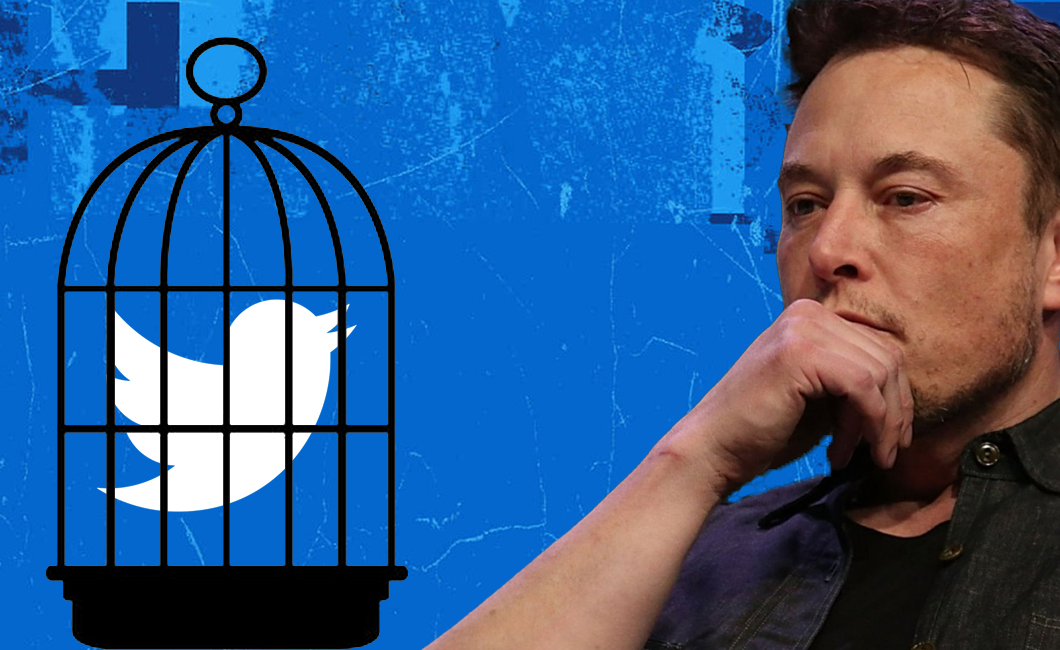The free speech dilemma
Musk refers to himself as a ‘free speech absolutist’, and had initially expressed intent to pull Twitter in line with those views. In one tweet, he suggests that Twitter censorship should not go ‘far beyond the law’.
By “free speech”, I simply mean that which matches the law.
— Elon Musk (@elonmusk) April 26, 2022
I am against censorship that goes far beyond the law.
If people want less free speech, they will ask government to pass laws to that effect.
Therefore, going beyond the law is contrary to the will of the people.
The choice of wording here gives us some insight into his thinking. Use of the term ‘far beyond’ suggests that his gripe is primarily with what he believes to be Twitter’s excessive moderation. The choice of initial phrasing, despite the splashy follow-up statement, gives me the impression he may see some kind of buffer zone; a need for moderation beyond that which is required by law.
Now, when it comes to law based censorship, this is a problem Twitter has grappled with in the past. The United States places heavy restrictions on the government’s ability to legislate speech; however, other countries do not. Twitter, being a global platform, cannot simply adhere to just US law. The platform’s legal department receives a near constant barrage of demands from authoritarian governments to censor content both domestically and internationally.
Ultimately, Twitter had to make a moral, not legal, decision on which content removal requests to comply with. The law should be neither the upper nor lower limit for content moderation. Platforms need to be both free from the grasp of authoritarian regimes, whilst also providing a safe place and engaging place for users to share their views.
The invisible bird cage
Despite owning 100% of Twitter and having no board to answer to, Musk can’t just simply do whatever he wants.
Twitter’s operating costs for last year were $5.57 billion, despite only $5.2 billion in revenue. On top of the current net loss, the loans used to purchase the platform add a further billion in yearly interest payments on top of current operating costs. At minimum, Twitter has a $1.4 billion dollar hole in their budget that needs filling. With a recession coming, we should expect the platform’s revenue to decrease rather than increase. The short of it is, Twitter is not in a good place financially.
With 88% of revenue coming from ads, Musk cannot afford to spook advertisers right now. It’s no secret that advertisers are notoriously selective about which brands they are willing to associate with. It’s not even a question whether providers will start pulling their ads should Twitter become too un-moderated. The problem isn’t even just what ad providers are willing to tolerate, but regularly Twitter users too. The more users that leave the platform, the less value advertisers get, and the less they’re likely to spend.
It would be extremely easy for Twitter’s revenue to evaporate should they become too lax with moderation. There’s also a very real possibility that the platform already has to meet a much higher standard under Musk, a result of his public stance. Advertisers are going be far more watchful going forward, likely noticing things they otherwise would have missed or ignored.
Now, it might be tempting to think there is a long game here. Slowly ween themselves off of ad revenue and move towards a user driven business model, but that is unlikely to work. In order to cover Twitter’s operating expenses, every single one of their nearly 300 million users would have to pay $2 per month (not accounting for tax). In reality, only a small portion of social media users are actually willing to pay to use a platform, and likely less so for Twitter. As has been proven time and time again, there really isn’t a huge market for platforms with lax moderation. Should it happen, we can expect a significant drop in the number of users willing to give money to the platform, as well as overall users in general.
No matter which way you look at it, the numbers just don’t work. If Musk truly intended to create a platform that embraces absolute free speech; he could have bought Gab, Parler, Gettr, and TruthSocial, all for less than the cost of Twitter. But I honestly don’t think that’s really the plan.
If we look at Elon’s Tweets post-acquisition, he seems very much aware of the need for both advertisers, and moderation.
— Elon Musk (@elonmusk) October 30, 2022
Dear Twitter Advertisers pic.twitter.com/GMwHmInPAS
— Elon Musk (@elonmusk) October 27, 2022
Twitter will be forming a content moderation council with widely diverse viewpoints.
— Elon Musk (@elonmusk) October 28, 2022
No major content decisions or account reinstatements will happen before that council convenes.
What’s next
I’m cautiously optimistic that we are not going to see any radical changes to Twitter’s moderation. Given that a lot of Twitter’s alleged censorship was simply perception, Musk may not actually have to do anything to appease free speech absolutists. His ownership of the platform is simply enough.
As Musk finds his bearings and explorers Twitter’s internal operations, it’s likely he will come to much of the same conclusions as his predecessors. We should expect to see big changes to Twitter’s moderation at a procedural level, plus maybe some increased transparency. However, for Twitter to remain solvent, the outcomes of these moderation procedures will need to remain largely unchanged.

